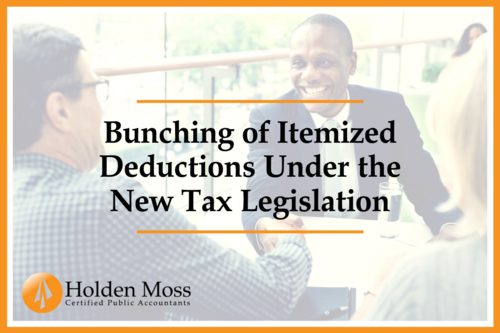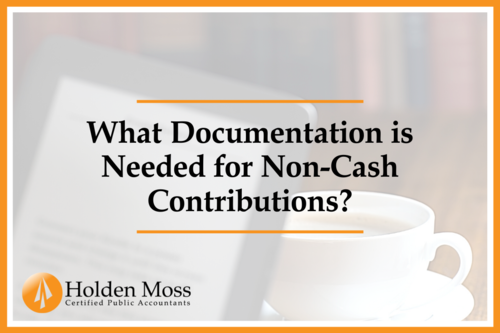Heads Up: Beneficial Ownership Information
I hope you are doing well. Dealing with the government is filled with enough challenges without having to worry about new rules and paperwork. But there’s a new requirement that we need to talk about—it's called the Beneficial Ownership Information (BOI) reporting. It is expected that 32 million existing small businesses in addition to many newly formed will be subject to this newly formed will be subject to the reporting requirements.
Why This Matters:
A new law was passed in 2021 called the Corporate Transparency Act (CTA), administered by FinCEN (the financial crimes arm of the government), demonstrates a significant shift requiring entities including LLCs, Corporations, Partnerships and even some Trusts to file a BOI report. The reporting includes rental LLCs, and even many inactive LLCs.
The BOI report identifies and provides contact information for “beneficial owners” - the human beings who own or substantially control the entity formed under state law. This information will be used by law enforcement to combat money laundering and other illegal activities. While it's meant to fight crime, for small businesses, it feels like just another administrative hurdle. Here’s what you need to know:
Important Points:
Who Needs To File? Generally, if you have less than 20 full-time employees and reported less than $5M in income on your most recent tax return, you likely need to file if you conduct your business through an LLC, corporation, partnership, or trust (that is not exempt under specific criteria). Most inactive LLCs, rental LLCs, and corporations will need to fill out this report. Even some nonprofit entities may need to file. If in doubt, file it because the penalties are huge.
Why Just Smaller Business? The FinCen Deputy Director recently said: “… big businesses are often disclosing their ownership in some way. If you think of a big public company like Amazon or Shell…, they already disclose information about those who own or control them, and indeed, are frequently subject to greater regulatory scrutiny.”
What are the deadlines?
- If your business was formed before 2024, you have until January 1, 2025, to file.
- For new businesses started in 2024, you have 90 days from when you formed your LLC or corporation.
- There is a draconian 30 day deadline for reporting changes in ownership or owner information like address or other previously submitted information.
What You Need to Report? The law requires you to list details like the full names, birthdays, addresses, and ID numbers of all “beneficial owners”, a very technical term.
How Often to File?
- If ownership and their reported data does not change, you only need to file once.
- If something changes with the ownership or other information reported, like address, file within 30 days.
Who’s Exempt? There are 23 exemptions one of which is the Large Operating Company (Exemption #21) which has six criteria, three of which are:
- More than 20 full-time employees of the entity are employed in the United States;
- The entity regularly conducts its business at a physical location in the United States that the entity owns or leases and that is physically distinct from the place of business of any other unaffiliated entity, and
- The entity reported greater than $5,000,000 as gross receipts or sales (net of returns and allowances) on the entity’s most recently filed tax return.
- So, potentially, home-based and cloud-based businesses, would not qualify for this exemption.
- This is an example of the intricacies of this law.
Caution: each of the 23 exemptions have one or more criteria that will need documentation. The inactive entity exemption has six criteria, all of which must be met and documented. And, if after qualifying for an exemption you fail to qualify, the entity then falls under the reporting requirements. Documentation is critical.
Where Do File? You file online with FinCEN through a system called BOSS, and while there are no associated filing fees, and you can prepare it yourself for free, for other than simple ownership, the rules are extensive and penalties can be massive.
What Are The Penalties for Not Filing? There are hefty fines, up to $500 per day and even imprisonment for willful failure to file, so it's important to get this done. FinCen has said: “The CTA penalizes willful violations of the law—which Congress specifically defined as “the voluntary, intentional violation of a known legal duty.” Such willful violations of the statute is where we plan to focus our future enforcement activity.”
Penalties are so steep that we understand some state Bar’s and liability insurers are advising attorneys against being involved in these filings. Many CPAs are declining to be involved.
While we have made the decision to assist our clients with their reporting requirements, this law is so complex we are not allowing our team to answer ad hoc or “quick questions” about compliance with the law unless we are filing the report.
Complications:
There has been pushback against the CTA. Cases in Utah and Michigan claim it unconstitutional. An Alabama federal district court has ruled the law unconstitutional for only 65,000 of the 32 million subject to the reporting. The case has been appealed to the 11th Circuit by the Justice Department (oral arguments late next month). Many in Congress are in agreement that the law should stand. Many legal experts agree there are strong legal grounds to overturn this decision. Similar laws, like the Bank Secrecy Act cleared legal challenges. Conversely, there are lawmakers who have introduced legislation in both chambers of Congress to repeal the law. A constant back and forth. We cannot predict the outcome.
Timing:
The 11th Circuit typically takes 9 months, likely pushing the decision into next year. Even then, that decision will be appealed to the US Supreme Court. Since the deadline for filing for existing entities is January 1, 2025, it is likely this matter will not be resolved by the deadline. We will likely not be able to wait out this decision – either for the courts to act or Congress to act.
Next Steps:
- Decide if you want to handle your own reporting, or do you ask your attorney or Holden Moss Knott to assist with the reporting.
- If you are self-filing:
- Here is the BOI site: https://www.fincen.gov/boi
- A number of FinCEN small business resources are located here.
- The 57 page FinCEN compliance guide is located here.
- Confirm if your business needs to file the BOI report.
- Caution: there are 23 types of exempt entities. You must read the details of the exemption checklist to confirm whether you qualify.
- Consider “substantial control”. Trust administrators, executors, or companies with a CEO who is not an owner may be beneficial owners.
- Keep track of your filing deadline based on when your business started or any changes in ownership or reported ownership information, even address changes.
- Create a procedure. Set up a reminder, monthly, to file an update for any change of reported information or ownership.
We’re here to help. We know this is frustrating, especially when you're busy trying to focus on your business. Our team is here to help you handle these new requirements.
We will prioritize filing for newly formed entities (with the 90 day deadline). As we can, we will file for existing entities with the January 1, 2025 deadline.
These BOI reporting services are separate from, and not included as part of our tax reporting or any other services. If you desire our help, this link gets us started and takes you to our document site for completion of an engagement letter.
Unfortunately, due to the complexity of the issues involved and the steep penalties, we will not issue any oral advice about these matters unless we are preparing your BOI report.
Please do not wait until the end of the year to make decisions on filing. We will handle these filings on a first come, first served basis. Extensions are not allowed.











